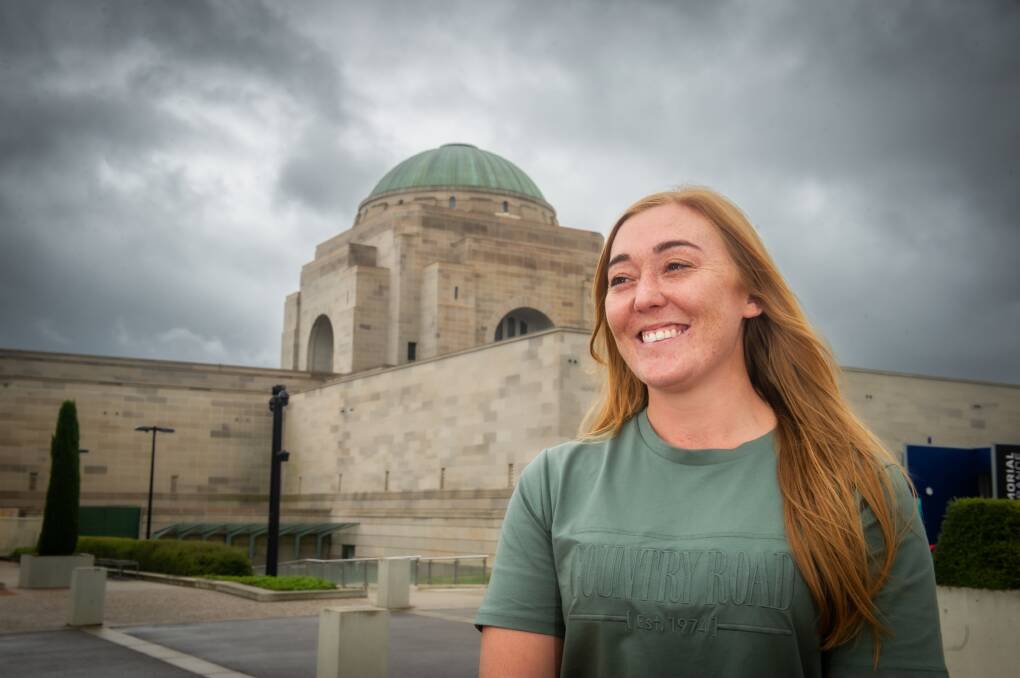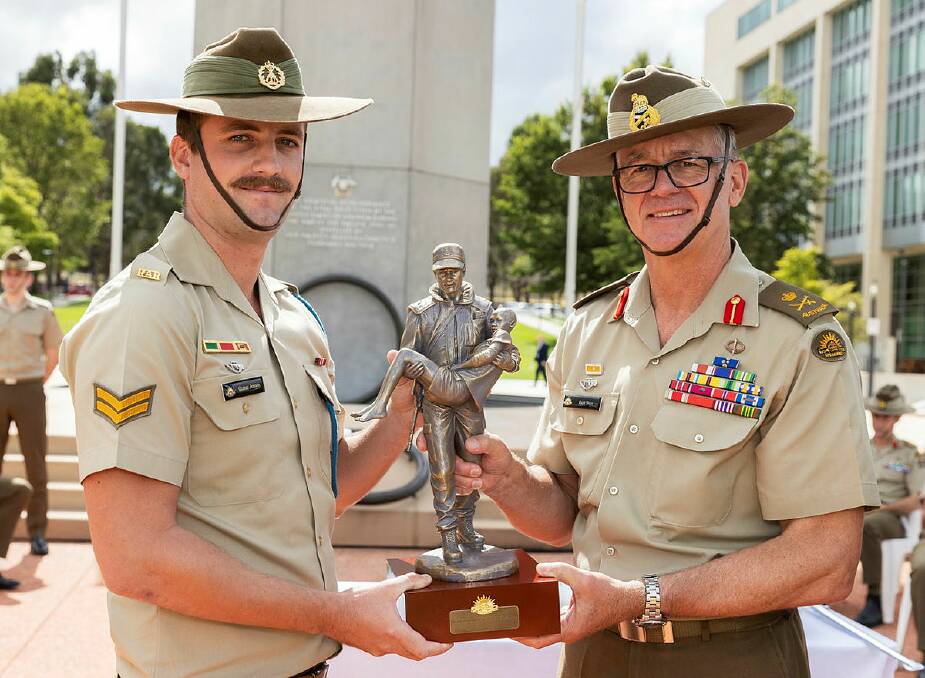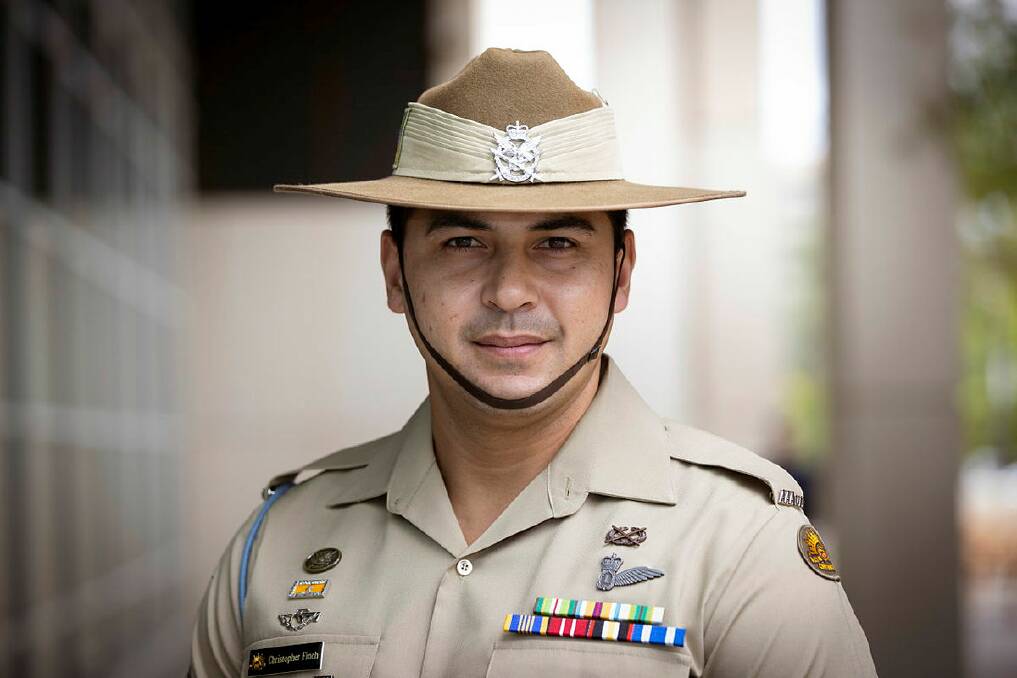
Soldiers who are a shining example to others have been honoured in a special ceremony in Canberra.
They include one who saved the life of a prisoner in Iraq.
Others who won "Good Soldiering Awards" went far beyond the call of duty in emergencies at home like floods.
Corporal Quinn Jensen, for example, was tasked with getting Australian citizens and those who had helped Australia out of the chaos of Kabul airport when the Taliban took control of Afghanistan.
He spent seven fraught days at the main gate to the airport when it seemed like a whole nation wanted to get through. He had to sift the genuine refugees from those who might even be enemies intent on killing him and other Australian soldiers.
Surprisingly, the enemy in this work was not the Taliban but Islamic State - the Taliban were trying to take over a government with minimum disruption while IS wanted to kill westerners.

"The Taliban were working with us. The Taliban weren't the enemy to us but they were the enemy to those trying to get to us (Islamic State)," Corporal Jensen said.
Many of the people who wanted to get into the safety of the airport were terrified and hiding outside the fences.
"The moment that really sticks in my mind is when I got two young girls out of the sewers and they were just clinging to me," Corporal Jensen said.
Through his efforts, they escaped. He saw them later in the safety of a processing centre in Dubai.
Sergeant Chris Finch demonstrated his bravery in the Townsville floods in 2019. For two days, he ferried people and animals in his own tiny boat from a roundabout which had become an island to dry - or rather not so wet - land.
On one of his trips, he came across a friend who had been lost in the floods. "I could see my mate coming through the water. He was with his wife and kids and when he saw me, he gave me a big hug," he said.

Lance Corporal Tahlia Keegan's good deeds were on the border between Victoria and South Australia during the worst days of COVID.
She helped the police and streamlined the system for letting border residents cross with ease, so much so that she said that one regular grumpy driver became a little less grumpy.
In the early days of her duty, there was no shelter but as the days passed, basic accommodation (and hospitality) was found. "One of the locals brought over firewood and coffee. they gave us a barbecue," she said.
One of the most intriguing awards was given to an unidentified recipient: 'Private F' "provided an outstanding example of ethical soldiering to the Iraqi partner force through treating and saving the life of a wounded detainee".
There is currently much controversy about the alleged unethical treatment of detainees but the Army gave no details of this ethical example.
The awards were made in honour of Trooper Jonathan Church who, in 1994, carried a severely injured Rwandan child to safety after a genocidal massacre of more than 2000 people in Rwanda. Trooper Church died two years later in a training accident when two helicopters crashed.
The 15 awards covered three years because ceremonies were suspended during the worst of the pandemic.
The recipients will go to France and Belgium and help in the work of identifying the bodies of soldiers who died in the First World War and who are still being uncovered in the fields of Flanders.







